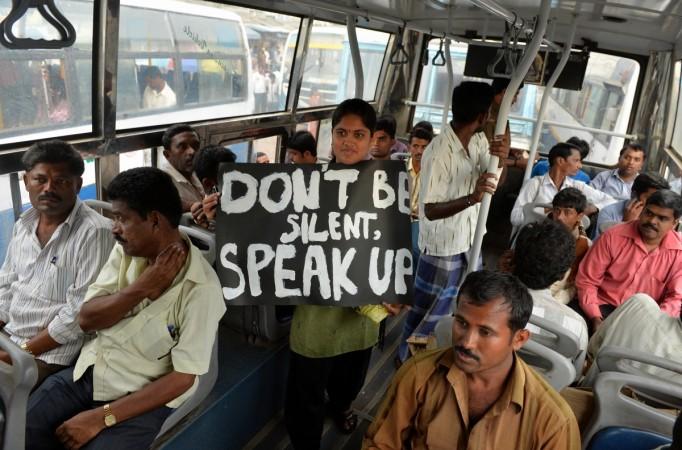No matter which side of faith or lifestyle you subscribe to, there's no denying the fact that women in India are unsafe. Sexual harassment is rampant and rape incidents are a part of everyday news. Ironic but even women IPS officers are reportedly unsafe now, going by Tamil Nadu records.

More than 10 women IPS officers met TN DGP JK Tripathi and demanded action against former Special DGP who is accused of sexually harassing a woman IPS officer and 2 other officers.
That's not it, in a related development, members of All India Democratic Women's Association (AIDWA) also staged a demonstration in front of the police headquarters demanding that action be taken against the Special DGP in question. The police sources said that he has been put on compulsory wait by the state government.

The women IPS officers have also sought action against SP who allegedly intercepted the vehicle of the complainant at a toll plaza in Chengalpattu. The complainant was proceeding to meet the Home Secretary and the DGP to lodge a complaint. Meanwhile, the Madras High Court has taken suo moto cognisance of alleged harassment and has decided to monitor investigation into the case itself.
The case hit the headlines but not without reminding us of India's long and continuing struggle when it comes to protecting women at workplaces.
The case that shaped Indian laws
For the unorganised sector, the movement #MeToo has hardly had any relevance. Poverty, stigma and 'unempowerment' meant women are encouraged to keep quiet than speak out loud.
Though justice for many remains elusive, it was the 1992 case of Bhanwari Devi that resulted in the Supreme Court formulating guidelines to deal with sexual harassment at the workplace. The case catalysed the activism that workplaces should be made safe for women and it should be the responsibility of the employer to protect women employee at every step.
A brief jog through the laws for the victims
Domestic workers, women labourers, daily wagers still seem to be largely left out of the ambit of laws and guidelines. In 2013, India enacted the Sexual Harassment of Women at Workplace (Prevention, Prohibition and Redressal) Act to protect workers in both formal and informal sectors. As per this act sexual harassment includes, "unwelcome acts or behaviour (whether directly or by implication) such as physical contact and advance, a demand or a request for sexual favours, making sexually coloured remarks, showing pornography etc." It is mandatory for the employer to form a Grievance Redressal Mechanism and the constitution of an Internal Complaints Committee (ICC).
Do the Internal Committees do a fair job?
This question was posed by the Indian National Bar Association, a non-profit organisation, to 6,047 survey participants in various cities, including Gurgaon, Delhi and Noida, between April 2016 and October 2016. Around 67 per cent of the respondents said, "No."
According to a 2019 survey "Reach and Impact of Sexual Harassment Policies in India", carried out across 200 women in 80 organisations by Pink Ladder, a career enhancement ecosystem for women professionals, 56% women believed that sexual harassment at the workplace had increased over the years and 53 % women had been subjected to sexual comments, gestures, jokes at the workplace.
As per the data published by Ministry of Women and Child Development, the number of sexual harassment cases at workplace registered a steep jump over the years, especially from 2014 to 2017. In 2017, as many as 570 cases of "insult to modesty of women at work or in office premises" were recorded. This figure jumped to 965 in 2018 and this is just at workplace.
In fact, it's the large number of reported cases that point out to much larger numbers of unreported cases. Almost all of the surveys point out that roughly 70 to 80 per cent of sexual harassment cases at workplace go unreported.









